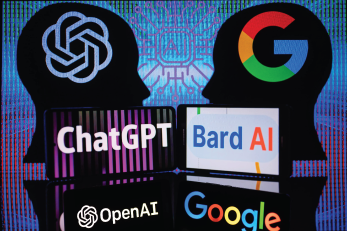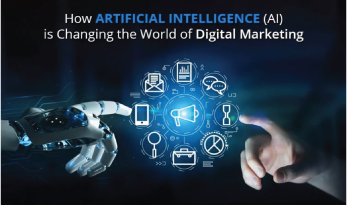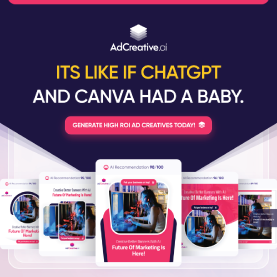Introduction
The world of digital marketing is on the brink of a transformation unlike anything we’ve seen before. Artificial Intelligence (AI) is no longer a futuristic concept — it’s the driving force reshaping how businesses engage with their audiences. As we look toward 2025, the stakes are higher than ever for marketers who want to stay relevant and competitive. The question is, are you ready to embrace this revolution?
AI has already made significant inroads into digital marketing, fundamentally changing how businesses interact with customers. By leveraging vast amounts of data and advanced algorithms, AI empowers businesses to connect with their audience in ways that were unimaginable just a decade ago. Here are some of the most impactful ways AI is shaping the present:
Personalization at Scale

AI enables marketers to deliver highly personalized experiences by analyzing customer behavior, preferences, and even past interactions. This ability to provide tailored recommendations creates a sense of individual attention that boosts engagement and loyalty. For example:
- Streaming platforms like Netflix use AI to suggest shows and movies based on viewing history, ensuring a personalized entertainment experience.
- E-commerce giants like Amazon analyze purchase patterns to recommend products customers are most likely to buy, enhancing convenience and boosting sales. This level of personalization is no longer a luxury but an expectation, setting a new standard for customer experience.
Chatbots and Virtual Assistants

AI-powered chatbots and virtual assistants are revolutionizing customer support by providing instant, 24/7 service. These tools:
- Offer quick responses to common inquiries, reducing customer wait times.
- Seamlessly handle multiple queries simultaneously, making them highly scalable.
- Use natural language processing (NLP) to understand and respond in conversational tones, improving user satisfaction. Brands like Sephora and H&M use chatbots not only for customer support but also to assist with product recommendations, further enriching the user experience.
Predictive Analytics

AI excels in analyzing historical data to predict future trends, enabling businesses to anticipate customer needs and craft targeted campaigns. This predictive power helps:
- Identify emerging market trends, allowing businesses to stay ahead of competitors.
- Segment audiences more effectively, ensuring that marketing efforts reach the right people at the right time.
- Optimize pricing strategies and inventory management based on demand forecasts. For instance, Spotify leverages predictive analytics to recommend playlists tailored to a user’s listening habits, fostering deeper engagement.
Content Creation and Optimization

AI tools like ChatGPT and Jasper are transforming content marketing by assisting in the creation of high-quality, relevant content. From writing blog posts and crafting ad copy to generating SEO-friendly headlines, AI helps marketers produce content faster and with greater precision. Additionally, AI-driven analytics tools can optimize content strategies by identifying what resonates most with target audiences.
Enhanced Advertising Strategies
AI is also reshaping the way businesses approach paid advertising:
- Platforms like Google Ads and Facebook Ads use AI to automatically optimize campaigns, targeting users based on their online behavior and demographics.
- AI-driven tools can analyze ad performance in real-time, suggesting adjustments to improve ROI. This has made digital advertising more efficient, allowing businesses of all sizes to compete effectively.
These advancements are just the beginning. As we approach 2025, the integration of AI will only become more sophisticated, with innovations like augmented reality (AR), voice search optimization, and even deeper predictive insights taking center stage. Businesses that embrace these technologies will be better equipped to connect with their audience, drive growth, and stay ahead in an increasingly competitive digital landscape. AI is not just shaping the present—it’s setting the stage for the future of marketing.
2. Key Trends to Watch for 2025
This post is your guide to understanding the trends, tools, and strategies that will define the 2025 digital marketing landscape. Let’s dive in and explore how AI can elevate your marketing game starting today.
Hyper-Personalization at Scale

AI’s ability to process and analyze vast amounts of data in real-time is setting the stage for hyper-personalization to become a standard practice in digital marketing. This goes beyond traditional personalization by delivering experiences tailored to each individual at an unprecedented level of granularity. Imagine:
- Dynamic Content Delivery: AI systems analyzing real-time user interactions to tailor content instantly, ensuring the right message reaches the right audience at the perfect moment. For example:
- E-commerce websites showcasing products a user is most likely to purchase based on their browsing history, wishlists, or even current trends.
- Streaming services adjusting their homepage layout dynamically to prioritize shows and movies a user is most inclined to watch next.
- Adaptive User Interfaces: Websites that morph and adapt based on a visitor’s browsing behavior, location, and preferences, offering a uniquely curated experience every time they visit.
- Precision Targeting in Campaigns: Emails and ads crafted to feel human, featuring product recommendations, messaging, and offers so finely tuned they seem written by a close friend who knows your preferences intimately.
This level of hyper-personalization will not only improve engagement rates but also deepen customer loyalty by making every interaction feel meaningful and relevant.
Voice and Visual Search Dominance

The rise of smart speakers like Amazon Alexa and Google Assistant, coupled with tools like Google Lens, is transforming how users search and interact with online content. By 2025, these technologies will be integral to digital marketing strategies. Key developments include:
- Voice Search Optimization:
- As consumers increasingly rely on conversational AI, businesses will need to reimagine their SEO strategies. This means targeting long-tail, natural language queries and implementing structured data to ensure their content is discoverable by voice-activated assistants.
- For example, a user might ask, “What’s the best pizza place near me with outdoor seating?” AI will prioritize businesses optimized for voice search and capable of answering such specific queries.
- Local businesses and e-commerce platforms alike will need to ensure their content aligns with the conversational and context-aware nature of voice search.
- Visual Search Advancements:
- Tools like Google Lens and Pinterest Lens are paving the way for consumers to search using images instead of text. For marketers, this means optimizing visual assets with detailed metadata, AI-driven tagging, and image recognition technology.
- For instance, a user could take a photo of a shirt they like, and AI would help them find similar items online. Brands that embrace visual search optimization will benefit from enhanced visibility and improved customer engagement.
AI-Powered Predictive Marketing

Predictive analytics is emerging as a cornerstone of future marketing strategies, enabling businesses to leverage historical and real-time data to anticipate customer needs before they even arise. By combining machine learning and behavioral insights, businesses will:
- Anticipate Customer Needs:
- AI tools will analyze patterns in customer behavior to identify emerging preferences and trends, allowing marketers to craft campaigns that feel proactive rather than reactive.
- For example, a travel agency could predict when a frequent traveler is likely to book their next trip and send personalized offers at the ideal time.
- Craft Data-Driven Campaigns:
- By predicting future purchasing behavior, businesses can design marketing efforts tailored to specific customer journeys, improving ROI and reducing campaign inefficiencies.
- For example, an online retailer might use predictive analytics to determine which customers are most likely to purchase high-ticket items, targeting them with exclusive offers or financing options.
- Streamline Marketing Spend:
- Predictive tools can identify high-probability leads, allowing businesses to focus their resources on the most promising prospects and reduce wasteful spending on less likely conversions.
Ethical AI and Data Privacy

As AI becomes more deeply integrated into marketing, the importance of ethical practices and data privacy will only grow. Businesses will need to adopt transparent and responsible approaches to maintain trust with their audiences. This will involve:
- Transparent AI Usage:
- Businesses must clearly communicate how AI is being used to enhance customer experiences and how data is being collected and processed. This includes avoiding “black box” AI systems and ensuring that decision-making processes are explainable to users.
- Adherence to Regulations:
- With stricter data privacy laws like GDPR and CCPA already in place, marketers will need to stay ahead of regulatory changes to ensure compliance and avoid potential penalties.
- This could include integrating consent management tools and offering users greater control over their personal data.
- Building Trust Through Ethical Practices:
- Companies that prioritize ethical AI practices will stand out in a crowded market. This includes avoiding intrusive data collection, preventing bias in AI systems, and fostering inclusivity.
- For example, a brand that openly shares how it safeguards user data and provides tangible evidence of its commitment to ethical practices is more likely to earn customer loyalty.
These trends represent just the beginning of how AI will shape the digital marketing landscape. As these technologies mature, businesses that embrace innovation while maintaining ethical standards will gain a significant competitive advantage, ensuring sustainable growth in an AI-driven world.
Would you like to delve into a specific subsection or add additional examples?
3. How Businesses Can Prepare Today

The 2025 revolution might seem far off, but the time to act is now. Here’s how you can start preparing:
Adopting AI Tools Strategically
Not all AI tools are created equal. Begin by:
- Identifying your business’s unique needs.
- Experimenting with proven AI platforms like HubSpot’s Marketing Hub or Salesforce Einstein.
- Gradually integrating AI into your workflows to ensure a smooth transition.
Upskilling Your Team
Your team is your most valuable asset. Invest in:
- Training programs focused on AI and data literacy.
- Certifications from platforms like Coursera, LinkedIn Learning, or Google AI.
- Cross-functional collaboration to align marketing and AI development.
Prioritizing Data Quality
AI thrives on clean, actionable data. Improve your data practices by:
- Auditing your current data collection methods.
- Implementing tools for data cleansing and organization.
- Ensuring your data complies with regulations like GDPR and CCPA.
4. Potential Challenges and How to Overcome Them

No revolution comes without hurdles. Here are common challenges and strategies to address them:
- Balancing Automation with Human Creativity: AI can automate tasks, but human intuition and creativity remain irreplaceable. Use AI to handle repetitive tasks, freeing your team to focus on strategy and innovation.
- Managing Costs and ROI: AI implementation can be expensive upfront. Start small, measure results, and scale up once you see positive ROI.
- Ensuring Trust and Transparency: Customers are wary of overly invasive technology. Be transparent about how you use AI and always prioritize customer privacy.
5. The Future of Marketing: Beyond 2025

AI’s evolution won’t stop in 2025. Looking further ahead, we can expect:
- Deeper AI-Human Collaboration: Tools that enhance, rather than replace, human creativity and decision-making.
- Immersive Marketing Experiences: AI-powered AR and VR campaigns that offer unparalleled engagement.
- Universal Access to AI: As technology becomes more affordable, even small businesses will leverage AI for marketing success.
Businesses that embrace AI today will lead the charge into this exciting future, setting themselves apart from competitors who hesitate.
Conclusion
The 2025 digital marketing revolution is already taking shape, and AI is at its core. By understanding key trends, adopting AI tools, and preparing your team, you can position your business to thrive in this new era.
Now is the time to act. Explore AI tools, invest in upskilling, and embrace the changes that are reshaping the marketing landscape. The future belongs to those who are ready to innovate — and that future starts today.


